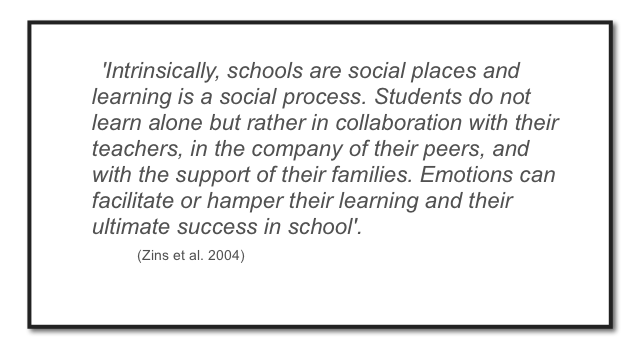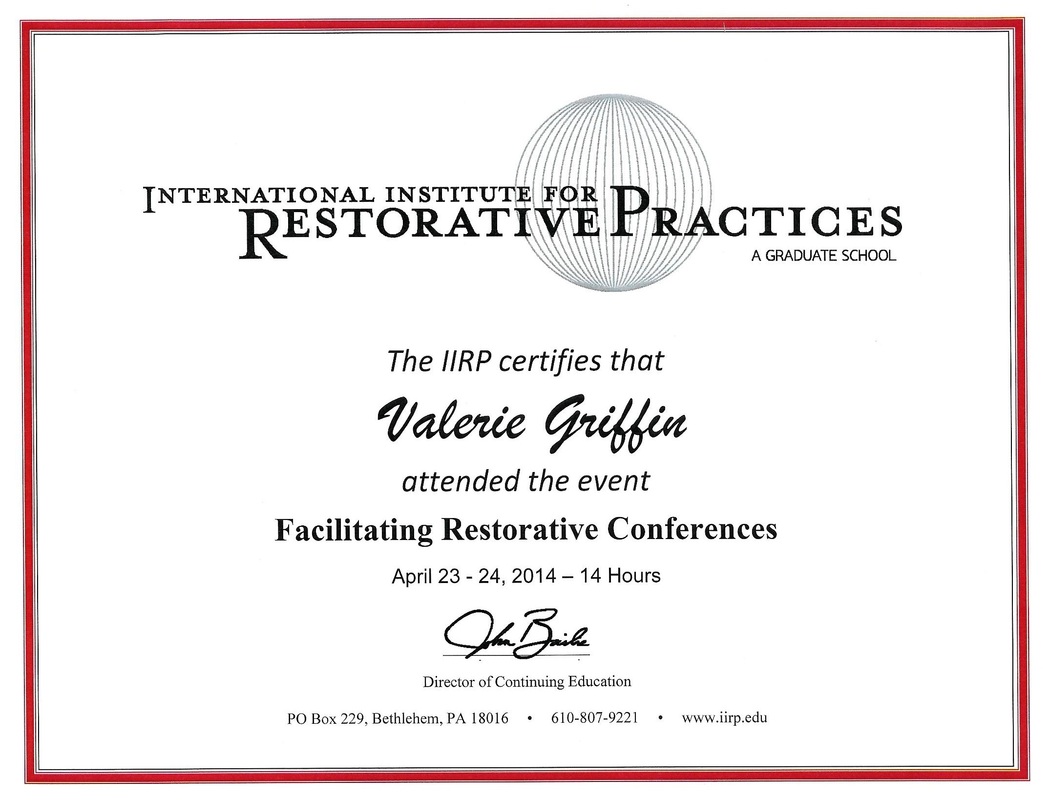In April 2014, I was trained by the IIRP in the facilitation of restorative conferences.
Restorative conferences allow those who have been most affected by an incident to come together to share their feelings, describe how they have been affected and develop a plan to repair the harm done and prevent recurrence. The process is useful for K-12 schools, criminal justice, higher education and workplaces.
During my training, I gained the knowledge required to:
Satisfy people's need to repair harm.
Restorative conferences allow those who have been most affected by an incident to come together to share their feelings, describe how they have been affected and develop a plan to repair the harm done and prevent recurrence. The process is useful for K-12 schools, criminal justice, higher education and workplaces.
During my training, I gained the knowledge required to:
Satisfy people's need to repair harm.
- People who are harmed have a chance to tell those who harmed them how they have been affected.
- Those who caused the harm gain empathy and understanding — not only for those directly affected, but for others who were impacted by their actions such as family, friends and coworkers.
- Those who have harmed have a chance to make amends and shed the “offender” label and break cycles of misbehavior and disruption.
- View and discuss videos of true stories that illustrate the emotional dynamics and healing potential of restorative conferences as compared to more punitive approaches.
- Utilize interactive exercises to identify and prepare people involved in incidents using restorative questions and affective statements.
- Practice and receive feedback facilitating scripted conferences to reintegrate people who have caused harm back into their community.




